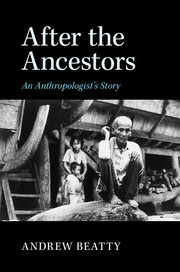Book contents
- Frontmatter
- Epigraph
- Contents
- List of illustrations
- Preface
- People
- Map
- Prologue
- 1 The statue
- 2 House key
- 3 Among women
- 4 Blood brothers
- 5 Daggers and debutants
- 6 Stormy Sunday
- 7 Three things that matter
- 8 The making of great men
- 9 A game of chess
- 10 Cholera song
- 11 Progress
- 12 Brothers and strangers
- 13 Exile and return
- 14 Field work
- 15 The chicken's neck
- 16 Good deaths and bad deaths
- 17 First family
- 18 Blessing
- 19 Half an egg
- 20 Waiting
- 21 Death of a chief
- 22 Ama Jonah at bay
- 23 Unravelling
- 24 The ethnographer and his double
- Epilogue
- Index
10 - Cholera song
Published online by Cambridge University Press: 05 March 2015
- Frontmatter
- Epigraph
- Contents
- List of illustrations
- Preface
- People
- Map
- Prologue
- 1 The statue
- 2 House key
- 3 Among women
- 4 Blood brothers
- 5 Daggers and debutants
- 6 Stormy Sunday
- 7 Three things that matter
- 8 The making of great men
- 9 A game of chess
- 10 Cholera song
- 11 Progress
- 12 Brothers and strangers
- 13 Exile and return
- 14 Field work
- 15 The chicken's neck
- 16 Good deaths and bad deaths
- 17 First family
- 18 Blessing
- 19 Half an egg
- 20 Waiting
- 21 Death of a chief
- 22 Ama Jonah at bay
- 23 Unravelling
- 24 The ethnographer and his double
- Epilogue
- Index
Summary
The climate in Nias does not fall into distinct seasons; at least, the seasons are less clearly contrasted than further east in Indonesia. Days and nights are of unvarying length. It is nearly always hot. So Niha chart the passing of the year by the changing night sky, the phases of the moon and by human activity – the feasting and cultivation cycles. (The first appearance of the Pleiades is the signal for the planting of rice.) When it rains, as it frequently does, people say, “It's the rainy season.” And in the odd spells of dry weather – which never last more than a few weeks – they say, “It's the dry season.” Between the two – but equally sporadic – comes the “sick season”.
After the rains subsided, there was an outbreak of cholera. The extent of the epidemic was never made public and the facts were impossible to discover. We heard rumours that hundreds had died in Teluk Dalam, the little port town in the south. The Catholic missionaries later told us they knew of a dozen cases. There were also deaths along the usual route out of the village along the valley. So it seemed safer to stay put and hope that the plague would not be washed downstream towards us in the brimming, brown Susua.
But every day there were new reports of deaths in nearby villages: somebody's cousin had been struck down in the fields and had died within hours; in Hilimböwö, three members of a family had succumbed on the same day. The catastrophic nature of the disease was news to us. It wasn't just a question of getting the right medicine, which we had. Our neighbour Ama Zinga, visiting his in-laws in Siraha, had watched a man's body drain away “like a punctured bag”. The only remedy was intravenous fluid. The paramedic kept a few bottles in reserve, but a serious attack required many more. One day, the tailor's brother, head of the Gomo clinic, passed through with a sick woman on a stretcher.
- Type
- Chapter
- Information
- After the AncestorsAn Anthropologist's Story, pp. 145 - 157Publisher: Cambridge University PressPrint publication year: 2015



